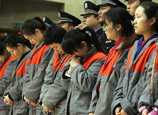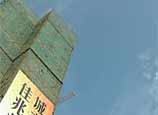
KHARTOUM, Feb. 4 (Xinhua) -- Tension that emerged anew on the joint border between Sudan and South Sudan could lead to destroying the standing fragile agreements inked between the two neighboring countries, observers said.
During a recent wave of exchanged accusations between the two countries, South Sudan's army accused Khartoum of bombing border areas in the oil-rich Upper Nile State in the south, while Khartoum accused Juba of mobilizing its forces on the border prior to invading Sudanese border areas.
The Sudanese army attacked a border area in Upper Nile State which resulted in the killing of a soldier of the Sudan People's Liberation Army (SPLA), South Sudan Army Spokesman Philip Aguer earlier told reporters in Juba.
He added that the Sudanese army launched an aerial attack on Babaniss area in Upper Nile State, reiterating that the attack resulted in wounding three SPLA soldiers and killing one soldier.
However, the Sudanese army denied that it targeted any areas in South Sudan.
"We have not bombarded any areas inside South Sudan's territories and we have not carried out any military operation there," the local Sudanese media quoted on Monday Army Spokesman Al-Sawarmy Khalid Saad as saying. Meantime, local authorities in Sudan's South Kordofan State said South Sudan sent great number of forces to the area.
Observers fear that the mounting tension on the joint border might lead to destroying the cooperation agreement inked by the two countries in September last year under the patronage of the African Union (AU) and bring the two sides back to the square of war.
"If the current skirmishing between Sudan and South Sudan continued, it would likely to lead to a new war between the two countries," Maj. Gen. Mohamed Al-Abbas Al-Amin, a Sudanese military expert and lecturer of strategic studies at Al-Zaeem Al- Azhary University in Khartoum, told Xinhua.
"It is not excluded that this skirmishing would develop and cause one of the two parties to escalate it and eventually lead to a military confrontation," Al-Amin said, attributing the border tension to their failure to demarcate their joint border.
"The Sudanese negotiators made a big mistake by not agreeing on the border demarcation first to ensure withdrawal of South Sudan's army. This mistake enabled Juba government to obtain cards to use against Khartoum," he said.
For his part, Sudanese political analyst Abdalla Adam Khatir affirmed that the exchanged accusations were likely to cripple the settlement efforts that had been exerted by the AU, the pan- African body.
"The war of exchanged accusations is likely to directly affect the two countries' endeavors to reach an agreement and cripple the efforts of the African mediation," Khatir told Xinhua.
In September 2012, Sudan and South Sudan signed a package of deals on various pending issues during a presidential summit in the capital of Ethiopia. They inked three deals on cooperation, security and post-secession matters, an accord which was witnessed by members of the AU High-Level Implementation Panel on Sudan ( AUHIP).
However, the signed agreements did not tackle the issues of Abyei and border demarcation.
The five disputed border areas in particular constitute main obstacles on the path of settling the outstanding issues between the two sides and tackling the issue of border demarcation.
The five disputed areas, in addition to Abyei, include Dabat Al- Fakhar, Jabel Al-Miqainis, Samha, and Kafiya Kanji.
Since the signing of the agreement, the two sides have failed to agree on several issues, which also include deployment of troops on their joint border and breaking the link between South Sudan's army and armed groups fighting the Sudanese government.
















 The journey is more important than the destination:Three people who opted for an adventure tell stories.
The journey is more important than the destination:Three people who opted for an adventure tell stories.


![]()
